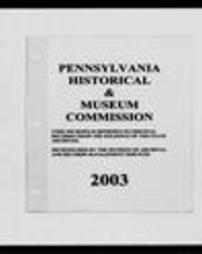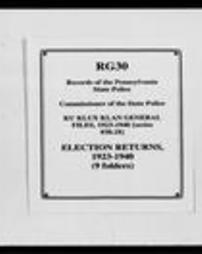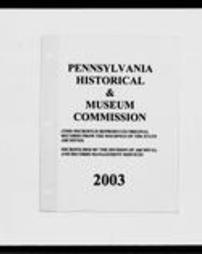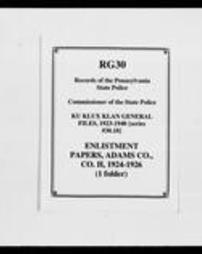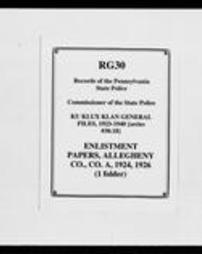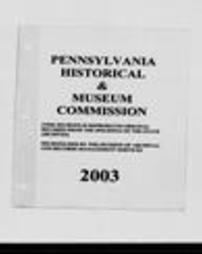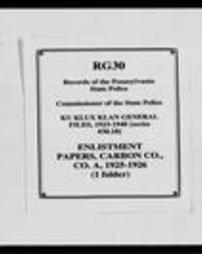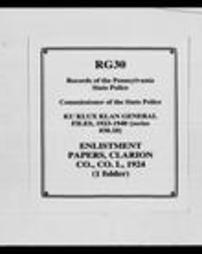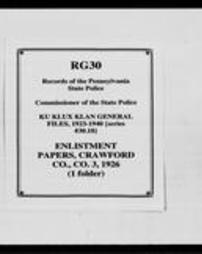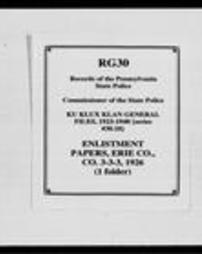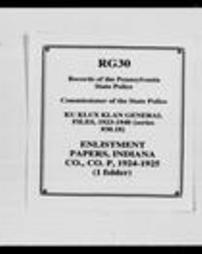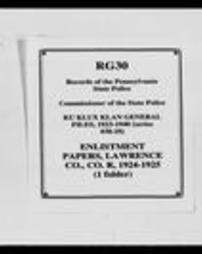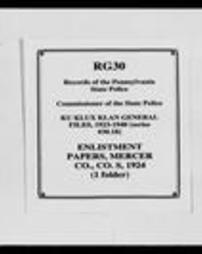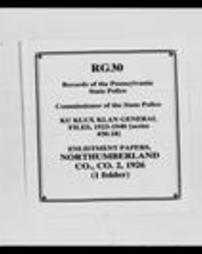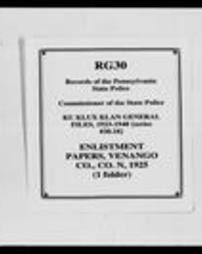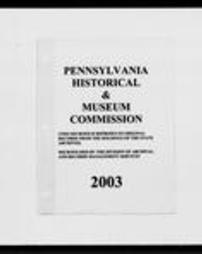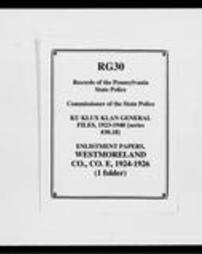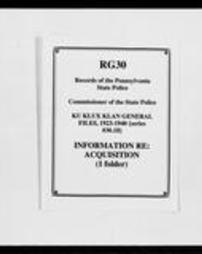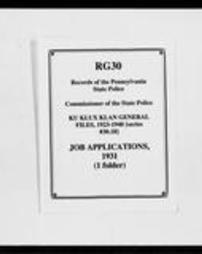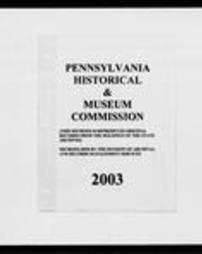About This Collection
The Department of State Police was created in 1905 to help preserve law and order throughout the Commonwealth and to cooperate with and assist local law-enforcement officers in the apprehension of criminals. It was the first uniformed police organization of its kind in the United States. The original complement was limited by law to only 228 men to patrol the 45,000 square miles of Pennsylvania. The State Highway Patrol in the Department of Revenue, which had originally been established in the Department of Highways in 1923 to enforce motor vehicle laws, was merged with the Department in 1937 to become the Pennsylvania Motor Police. The name of the agency was changed to Pennsylvania State Police in 1943. In keeping with its responsibility to assist local police departments, the State Police administer professional training programs for municipal police, and provide direct assistance to State law enforcement agencies wishing to utilize the technical, scientific and data resources of the Department. They have jurisdiction in all political subdivisions in the state.This collection, grouped by subject and then chronologically, contains series of various papers, election returns, rosters, publications, and applications detailing Klan operations. The rosters and election returns were sent to the headquarters in Philadelphia, listing new Klan personnel and elected leaders. Each quarterly roster (present for the years 1933-1938) details the number of new members received, those suspended or deceased, the total number of members, losses and/or gains, as well as the province number, Klan number, and official Klan name and address. Election returns, or 'Report of Officers Elect,' provide names, numbers, location of Klan, date of klonklave and location of klavern in question. The names of the various officer positions up for election included: Exalted Cyclops, Klaliff, Klokard, Kludd, Kligrapp, Klabee, Klad, Klarogo, Klexter, Nighthawk, Klikann Chief, and Klokan numbers 1 and 2. Among the various papers are counter signs giving code and password cyphers once a Klan met necessary requirements and all memberships were paid up. National and Imperial countersigns were given and consisted primarily of state names. All were signed by Stouch, the Imperial authority of the KKK in Delaware, New Jersey, and Pennsylvania. The bottom half of the counter sign sheet consisted of a pledge of undertaking the proper instructions for guarding the passwords. The enlistment papers, 1924-1926, provide information relative to new Klan recruits. Data such as the company, troop number, rank, serial number, name, address (street, city, county), enlistment period, age, height, weight, complexion, eye color, hair color, distinguishing marks, marital status, military service, education, qualifications, character, occupation, enlistment date, and signature of the recruit is provided. Enlistment papers are only available for the following counties: Adams, Allegheny, Beaver, Carbon, Clarion, Crawford, Erie, Indiana, Lawrence, Mercer, Northumberland, Venango, Washington, and Westmoreland. An information file regarding the acquisition of the KKK records is present, attributing the 'find' to Private R. Roth, Pennsylvania State Police 4th Squadron Intelligence, on 3 June 1940. Mailing lists, 1924-1938, give province number, county seat, population, square mileage, name, street address, city, and county. There is a list for the Women of Unity Klan #17, New Jersey. Official Bulletins, 1936-1937, declare provincial tax reports, Imperial Klonvocations, lunch committees, presidential elections, Halloween parties, and Ham and Egg suppers. Publications which belonged to Samuel Stouch are present, including Facts in Review, published by the German Library of Information in NYC (which listed daily news broadcasts from Berlin) and a book written by fifty-four leading American writers, We Hold These Truths, which provides statements on anti-Semitism and contains lists of anti-Semitic publishers, organizations, and individuals in America. Quarterly reports list all members in good standing, the number of members naturalized, those reinstated and transferred, those died, banished, or suspended. Disclaimer: The Pennsylvania State Archives provides digital access to a wide variety of historical documents, some of which may be considered offensive by current standards. The Archives does not endorse views expressed in these historical collections, but presents these collections to aid in scholarly research.
